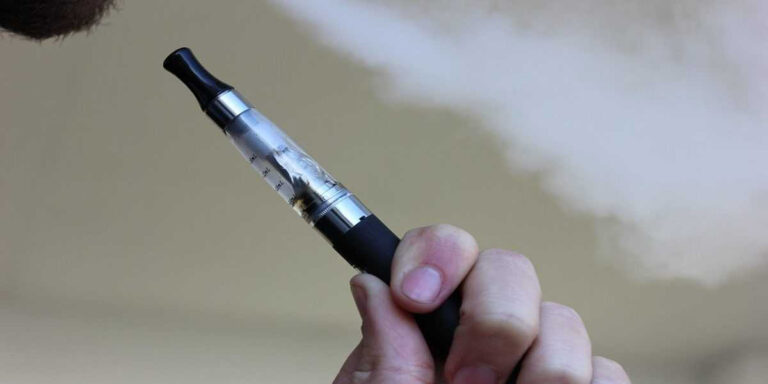On July 8, 2024, US Senator Susan Collins, along with a bipartisan group of colleagues, sent a letter to the Department of Justice (DOJ) and the Food and Drug Administration (FDA) requesting more details about the recently announced interagency task force aimed at combating the illegal sale and distribution of unauthorized e-cigarettes.
Background and Senators Involved
The letter was co-signed by several senators, including Dick Durbin (D-IL), Mitt Romney (R-UT), Richard Blumenthal (D-CT), Jeff Merkley (D-OR), Thom Tillis (R-NC), Mazie Hirono (D-HI), and Ron Wyden (D-OR). This bipartisan effort highlights the importance and urgency of the issue across party lines. The request follows the June 10, 2024, announcement by the DOJ and FDA about forming a federal multi-agency task force to tackle the illegal distribution and sale of e-cigarettes.
Objectives and Actions of the Task Force
The newly formed task force aims to coordinate efforts among various law enforcement agencies, employing all available criminal and civil tools to address the illegal e-cigarette distribution and sales. The primary goal is to combat the proliferation of unauthorized e-cigarette products that contribute to nicotine addiction among American youth. The task force includes collaboration from the FDA, DOJ, Bureau of Alcohol, Tobacco, Firearms, and Explosives (ATF), US Marshals Service, US Postal Inspection Service, and the Federal Trade Commission (FTC).
Concerns and Inconsistencies
Despite welcoming the creation of the task force, the senators expressed concerns about inconsistencies in public statements made by the FDA and DOJ. Officials have stated that only 27 e-cigarette products have received FDA authorization, yet thousands of unauthorized e-cigarettes with flavors appealing to children remain widely available on the market. This discrepancy undermines efforts to control the illegal sale of e-cigarettes and protect public health.
The senators emphasized that the task force’s primary goal should be to restore and enforce the market’s pre-authorization requirements, ensuring the removal of all unauthorized e-cigarettes. This step is crucial for maintaining the integrity of public health regulations and preventing youth access to harmful nicotine products.
Call for Action on Pending Applications
The letter also urged the FDA to expedite its long-overdue reviews of premarket tobacco product applications (PMTAs) from e-cigarette manufacturers. Under the Tobacco Control Act (TCA), e-cigarette companies must obtain FDA authorization before entering the market. However, the FDA has yet to complete all necessary reviews, missing the court-ordered deadline on September 9, 2021. Since then, approximately 2.1 million children may have started using e-cigarettes. The FDA also missed another deadline to complete certain product reviews by June 30, 2024.
The senators strongly urged the federal government to take more stringent and consistent measures to ensure that all illegal e-cigarettes are removed from the market, thus protecting public health, particularly that of teenagers.
Government and Regulatory Responses
In response to the senators’ concerns, FDA and DOJ officials have reiterated their commitment to addressing the issue of illegal e-cigarette sales. They have outlined plans for increased enforcement actions and collaboration with other agencies to ensure comprehensive oversight. The task force is expected to enhance regulatory measures and streamline efforts to combat the illegal distribution of e-cigarettes.
Impact on Public Health and Youth
The health risks associated with e-cigarettes are significant, particularly for teenagers. Nicotine addiction can lead to long-term health issues, including respiratory problems, cardiovascular diseases, and cognitive impairments. The proliferation of flavored e-cigarettes exacerbates these risks by making the products more appealing to young people.
Historical Context of E-Cigarette Regulation in the US
The regulation of e-cigarettes in the US has evolved significantly since the enactment of the Tobacco Control Act. Key milestones include the FDA’s authority to regulate tobacco products, the implementation of PMTAs, and various court rulings mandating regulatory actions. Despite these efforts, challenges persist in fully regulating the e-cigarette market and ensuring compliance.
Industry Reaction and Compliance
E-cigarette manufacturers have had mixed reactions to increased regulatory scrutiny. While some companies have complied with PMTA requirements and sought FDA authorization, others continue to operate in the gray market, selling unauthorized products. Compliance challenges remain, particularly for smaller manufacturers lacking the resources to navigate the regulatory process.
Role of Law Enforcement in Combating Illegal Sales
Law enforcement agencies play a crucial role in combating the illegal sale and distribution of e-cigarettes. The involvement of agencies like the ATF, US Marshals Service, and FTC is vital for enforcing regulations and prosecuting offenders. Successful enforcement actions, such as seizures of illegal products and prosecutions, serve as deterrents and help maintain market integrity.
Public and Advocacy Group Reactions
Public health advocacy groups have been vocal in supporting stringent e-cigarette regulations. Organizations such as the American Lung Association and Campaign for Tobacco-Free Kids have emphasized the importance of protecting youth from nicotine addiction and have called for robust enforcement of existing regulations. Public opinion also generally supports measures to curb illegal e-cigarette sales and protect public health.
Future Directions for E-Cigarette Regulation
Looking ahead, the regulation of e-cigarettes in the US is likely to become more stringent. Potential new measures could include stricter advertising controls, enhanced penalties for non-compliance, and greater support for smoking cessation programs. The long-term goal is to create a regulatory environment that effectively protects public health and reduces the prevalence of nicotine addiction among youth.
FAQs
What is the main objective of the FDA and DOJ joint task force?
The task force aims to combat the illegal sale and distribution of unauthorized e-cigarettes, protecting public health and reducing nicotine addiction among American youth.
Who are the key senators involved in the initiative?
The initiative is led by Senator Susan Collins and co-signed by several bipartisan senators, including Dick Durbin, Mitt Romney, Richard Blumenthal, Jeff Merkley, Thom Tillis, Mazie Hirono, and Ron Wyden.
What are the concerns about the availability of unauthorized e-cigarettes?
Despite only 27 e-cigarette products receiving FDA authorization, thousands of unauthorized e-cigarettes with flavors appealing to children remain widely available, undermining regulatory efforts.
Why is it important for the FDA to complete PMTA reviews?
Completing PMTA reviews is crucial for ensuring that all e-cigarette products on the market meet safety and quality standards, reducing health risks and protecting consumers.
What impact does the illegal sale of e-cigarettes have on public health?
The illegal sale of e-cigarettes contributes to increased nicotine addiction among youth, leading to long-term health issues and undermining public health efforts.
How can consumers stay informed about e-cigarette regulations?
Consumers can stay informed through public health campaigns, regulatory announcements, and guidance from advocacy groups and government agencies.


















